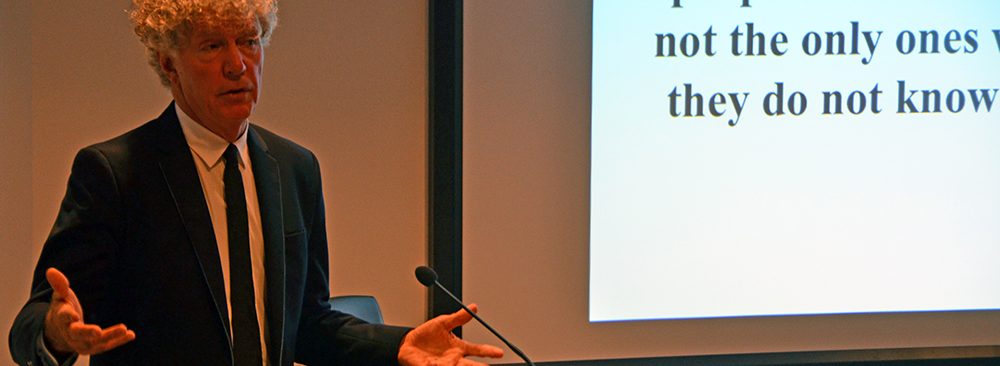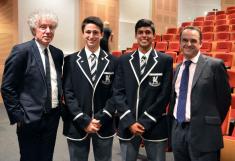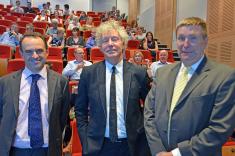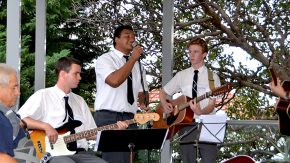Keane Eye for the Truth
Professor John Keane opened the 2014 Centre for Ethics lectures at Newington College with a potentially (in his words) “very brief dissertation on Does Truth still Matter in Politics?”
As a creative thinker about democracy, the answer to Prof Keane’s conundrum on truth in politics was anything but fleeting, as he began with the controversial suggestion that currently, amongst many people, there is a “great suspicion of truth – a rise in the level of cynicism and awareness of irony, that says truth is a trope.”
Further, Prof Keane proposed that truth in politics and the media has been replaced by “truthiness” – a term he uses to show the twisting of truth to tailor to those with power and knowledge.
“But the strange paradox,” he said, “is that people continue to seek truth and use terms like ‘indisputable facts’, ‘truth commissions’, ‘truth-o-metres’ and spend time on the internet searching Factscheck.org. He reminded us that Wikileaks founder Julian Assange and his supporters “have a great attachment to truth”. His argument was thought-provoking in depicting the doubleness of our relationship with truth – while we may undermine truth as a flawless concept, we still cling to the belief that truth matters.
If one of the goals of the Ethics Centre lectures is to challenge the complacency we have towards truth while juggling with our busy, contemporary lives, Prof Keane held up an extraordinary portrait to the audience of academics, teachers, parents and students that truth is dynamic, changeable and perhaps, does not last. But then again, Prof Keane suggested that in a world without truth, we would also lose the chance to measure the effects of power on truth.
“We would have no weapon to criticise leaders, bring corruption to account, or rebel against ignorance,” he said.
So how do we deal with this dichotomy of cynicism about truth and our dependability on it, particularly in regards to truth from our political leaders?
He proposed a little humility is perhaps needed in the statements from our politicians, and from us, an acceptance that they cannot know all truth. Is there anything wrong with a politician saying honestly “I do not know – but I will find out?”.
We should avoid expecting our politicians to have “heads stuffed with unlimited quantities of information about reality”, and instead expect them to be wise citizens -“those who know that they are not the only ones who know that they do not know everything”.







